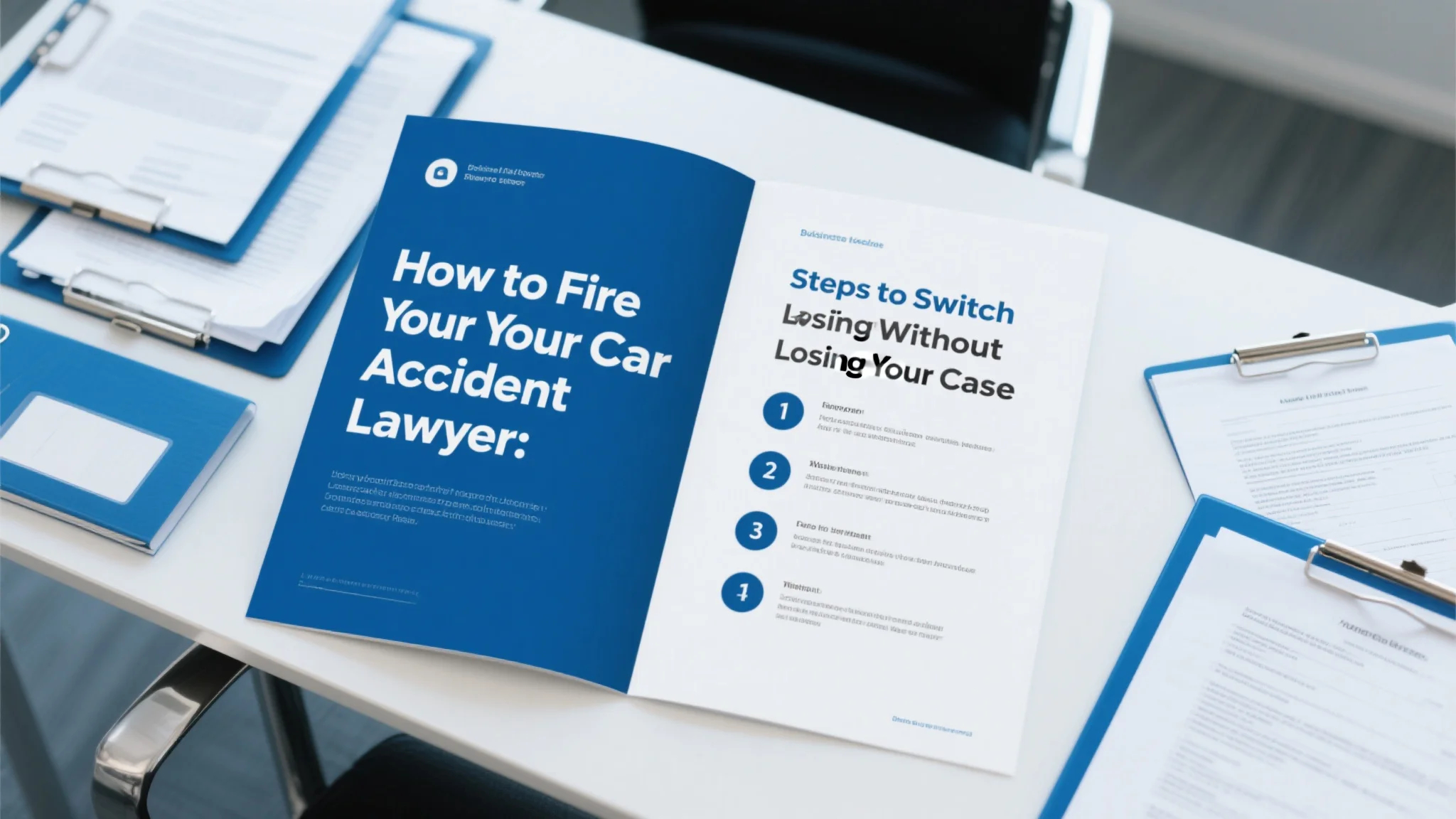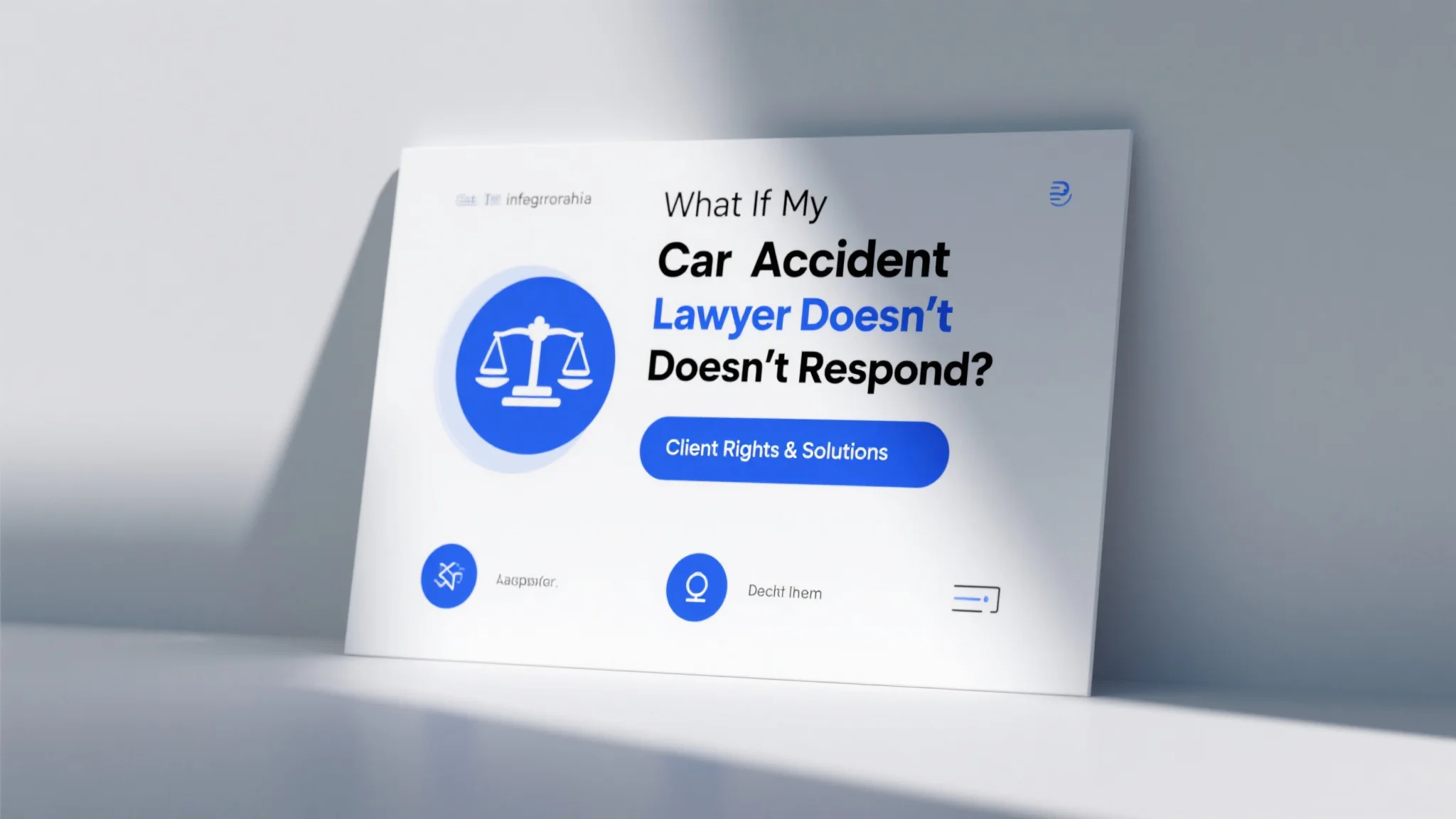Recognizing When It’s Time to Change Legal Representation
Deciding to pursue firing your attorney is a significant step that shouldn’t be taken lightly, but there are valid reasons that may necessitate this change. If your current lawyer isn’t communicating effectively, lacks expertise in car accident cases, or isn’t aggressively pursuing your claim, you may need to consider switching lawyers to protect your legal rights. Other red flags include missed deadlines, lack of clear strategy, or personality conflicts that hinder your attorney-client relationship. Before making any decisions, carefully review your fee agreement to understand any financial or contractual obligations related to terminating representation.

The Proper Procedure for Terminating Your Current Attorney
When you’ve decided to proceed with firing your attorney, there’s a professional way to handle the transition that minimizes disruption to your case. Start by formally notifying your current lawyer in writing, preferably via certified mail, that you’re terminating their services. Be clear about your decision but remain professional – you may need their cooperation during the transition. Request a complete copy of your case file, including all documents, correspondence, and evidence gathered on your behalf. Your termination letter should also address any outstanding financial matters and request an itemized accounting of work performed if you’re on an hourly fee arrangement.
Securing New Representation Before Making the Switch
One of the most critical aspects of switching lawyers is ensuring continuous legal representation for your car accident case. Before terminating your current attorney, consult with several potential new lawyers to find one with the right expertise and approach for your situation. Many personal injury attorneys offer free initial consultations. When interviewing new candidates, ask specifically about their experience with legal representation change mid-case and how they handle transitions. Your new attorney should be willing to review your case file from the previous lawyer and identify any potential issues that need immediate attention due to the switch.
Managing the Transition Between Legal Teams
A smooth legal representation change requires careful coordination between your outgoing and incoming attorneys. Your new lawyer will typically handle most of this process, including submitting a substitution of attorney form to the court if your case has already been filed. They’ll also notify insurance companies and other involved parties about the change in representation. During this transition period, maintain copies of all case-related documents yourself as an extra precaution. Stay informed about any upcoming deadlines or court dates to ensure nothing falls through the cracks during the handoff between legal teams.
Protecting Your Case During the Attorney Transition
When navigating the process of firing your attorney and hiring new counsel, your car accident claim remains vulnerable to certain risks. Insurance companies may try to take advantage of the transition period, so it’s crucial to have continuous representation. If there’s any gap between attorneys, be extremely cautious about discussing your case with insurance adjusters or accepting any settlement offers. Document all communications and don’t sign anything without your new lawyer’s review. Your new attorney will need to quickly get up to speed on your case details, so provide them with complete information about the accident, your injuries, treatment, and all previous interactions with insurance companies or the court system.
Financial Considerations When Changing Lawyers
The financial aspects of switching lawyers mid-case require careful attention. Most personal injury attorneys work on contingency fees, meaning they receive a percentage of your settlement or verdict. When changing representation, you’ll need to clarify how fees will be divided between your previous and new attorneys. Some states have specific rules about fee splitting in these situations. Your new lawyer should explain all financial arrangements clearly in writing before you sign a new fee agreement. Be wary of any attorney who promises you’ll get more money after the switch – while a more aggressive lawyer may improve your outcome, there are no guarantees in litigation.



